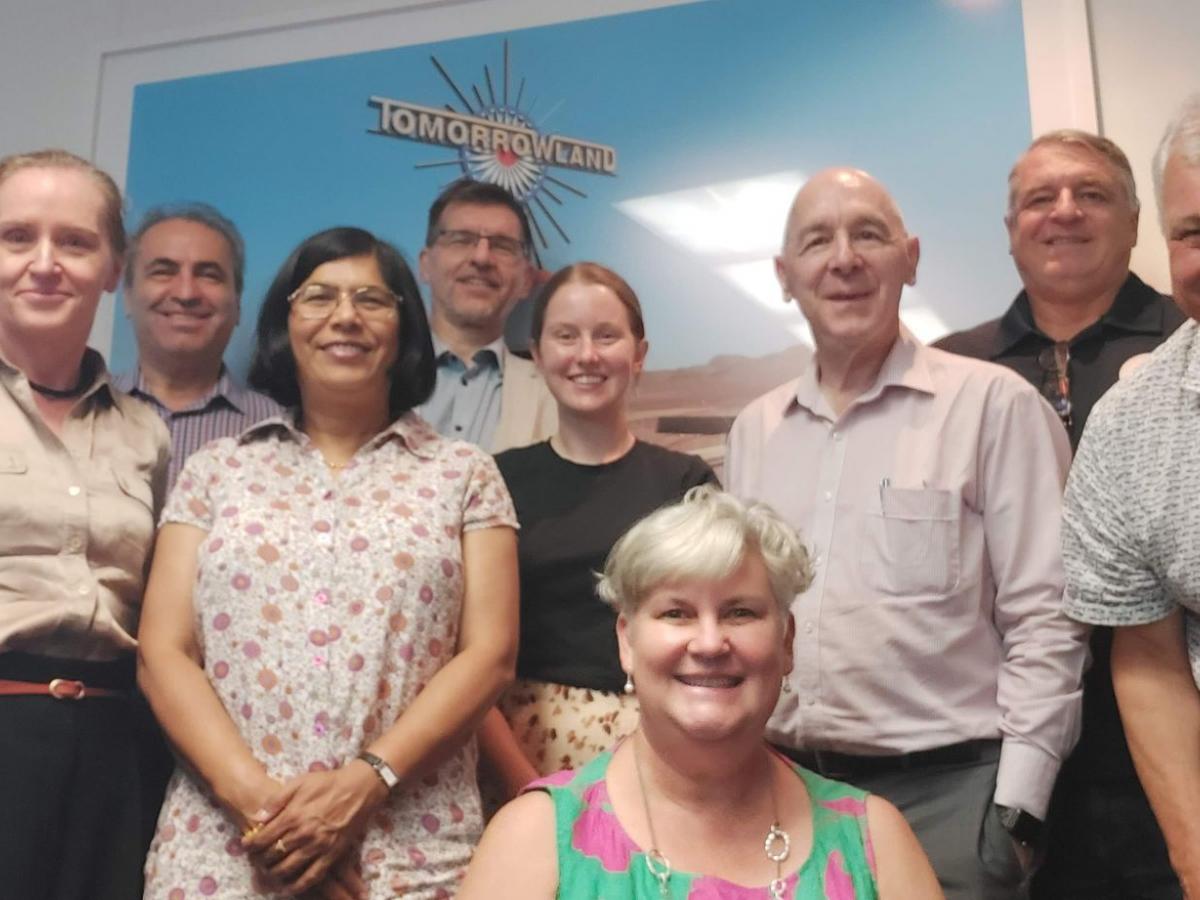RadInnovate: A New Training Centre for Radiation Innovation

A/Prof Ivan Kempson (UniSA), Prof Eva Bezak (UniSA lead), A/Prof Shahraam Afshar (UniSA), Prof Mahananda Dasgupta (ANU, Centre Director), A/Prof Eric Fusil (UoA), Dr Ashleigh Hull (UniSA), Ingrid McCarthy (ANU, COO), Prof Ian Olver (UoA), A/Prof Tony Hooker (UoA), Prof Nigel Spooner (UoA Lead), Dr Kim Harvey (UoA).
The ARC Industrial Transformation Training Centre for Radiation Innovation (RadInnovate) marks a major milestone for Australia's capabilities in nuclear and radiation science and policy.
Led by The Australian National University (ANU) in collaboration with the University of South Australia (UniSA) and the University of Adelaide (UA), the Training Centre boasts participation from over 16 partners spanning industry and government sectors, including Research and Development Corporations (RDCs), industry representatives, Commonwealth, State, and Territory governments, as well as research and technology organisations. Despite its crucial role in medicine and industry, radiation faces public misconceptions. This grant signifies a significant step forward in promoting responsible use of radiation and exploring its full potential for positive outcomes.
Last week, the Chief Investigators from the University of Adelaide and UniSA had the opportunity to meet with RadInnovate Centre Director, Professor Mahananda Dasgupta (ANU), and the Chief Operating Officer, Ms Ingrid McCarthy (ANU), to kickstart the process of bringing together all their industry partners and researchers.
Professor Nigel Spooner and Associate Professor Tony Hooker, both from IPAS at the University of Adelaide, emphasise the critical shortage of skilled radiation and nuclear professionals. RadInnovate marks a pivotal first step to address this gap, laying the foundation for a future skilled workforce that enhances Australia's sovereign capability. The training centre is also poised to play a crucial role in augmenting essential expertise, legislative insight, and knowledge necessary for handling and leveraging radiation effectively.
Launching shortly, RadInnovate is now seeking expressions of interest from future PhD students passionate about nuclear and radiation science, communications, governance, or policy. With PhD projects under development, we anticipate advertising the first scholarships in just three months. Stay tuned for announcements, please contact A/Prof Tony Hooker or Prof Nigel Spooner for inquiries.
